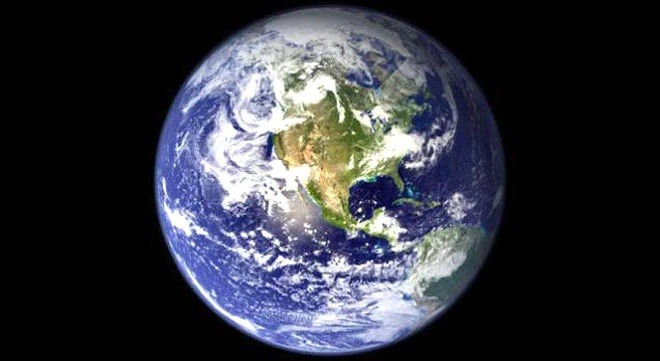India’s Pursuit Towards Climate Justice
Dr. Rimple Manchanda, Associate Professor, GD Goenka University, Gurgaon

Throughout the world there is a significant concern for climate change and its effect on humanity. Though climate change is a global phenomenon but it has grave local implications including impact on land, air, water, natural resources, biodiversity etc. It is posing number of challenges in terms of extreme weather conditions leading to erratic weather events that has endangered natural resources and threatened lives and livelihood of people. We need to keep in mind that the connectedness of human actions and environmentis creating natural imbalance. Nature is reciprocating to the insensitiveness of humans in the forms of climate induced disasters.
For India, being a developing country, climate change is not merely an environmental concern, it has emerged as the biggest developmental challenge. India,at the verge of surpassing China as world’s most populous country in April 2023, is witnessing the extreme climate events and hazards being transmuting into natural disasters.The increasing population and need for industrialization are counteringthe increasing demographic dividend, posing pressure on country’s labor market. This is necessitating switching to pro-environment alternatives to support increasing economic activity and energy demand.
Recognizing the boomerang effect of anthropogenic actions on lives and livelihood of people, there is an absolute need for a sustainable course of action that not only is resilient to the undesirable influence of climate change but also is in agreement with socio-economic goals and is development oriented. This requires an inclusive framework that prepares and arranges for just transformation that trims down the negative impact of climate change, and priorities the protection of livelihood of vulnerable to bring climate justice.
In India, the energy sector has emerged as the largest contributor of greenhouse gases, followed by agriculture and industrial processes. It is expected that there is going to be see sharp increase in energy demand in coming future.With this backdrop the Economic Survey 2023 has emphasized on use of renewable sources of energy specially for power production which will promote energy security.
Policy makers after years of discourse and futile attempt of enterprising on climate friendly policies now intend to pursue the subject matter of climate change with inclusive growth and development as the focal agenda.The inefficiency of climate policy so far could be attributed to gaps in the understanding of the tradeoff between climate action and economic growth; dwindled cooperation from stakeholders and disregard of comprehensive growth.
The good news is that India is amongst best performing countries in the world as far as achievement of emission targets are concerned. It is set toreduce GHG emissions intensity of its Gross DomesticProduct by 45 per cent by 2030 from 2005 levels. The data shows that in India, the share installed power capacity of renewable energy has gone up. It has increased from 12% in 2014-15 to 29% in 2021-22. India is heading in the right direction to achieve its 2030 emission targets. Better implementation and execution of climate policy specifically the policies related to use of renewable energy, would help achieving the short term targets of Nationally Determined Commitment and willbring it closer to its long term targets.
Some of the ways to create sustainable society and to expedite the effortstowards net zero emission by 2070, we need to adoptclean energy, clean transport, increase our dependence on energy efficient or climate friendly energy resources, bank on renewable resources like rooftop solar panels, solar water heating system, small-scale wind generation techniques, use fuel cells powered by natural gas or renewable hydrogen, and geothermal energy, encourage the use of energy efficient sources of electricity for home, offices like using CFLs (Compact fluorescent lights); support the use of electric vehicles and to do that complementing the existing fuel stations with charging stations.
Along with this the increase in subsidies on use of renewable energy and imposing higher tariffs on use of fossil fuel will not only contribute to emission targets but also boost the wellbeing of people with reduced pollution.
Considering the tradeoff between development and climate action, there is a need for ‘Just Transition’ in India, which requires an inclusive framework, that prepares and arranges not only to trim down the GHGs emission, but also priorities the protection of people in vulnerable position.
As the world confronts the challenge of mitigating and adapting to the climate change, the effect is severe forIndia, wheremaximum population reside in rural area and lives and livelihoods are predominantly supported by occupations that depend on climate conditions.
We need to engage in the comprehensive approach to achieve the objective of mitigating and adapting the impact of climate change by integrating the management of natural resources along with safeguarding the lives and livelihoods of people in both rural and urban areasas they complement each other for the overall development of the country. In the context of changing climate scenario, protection and enhancement of resources is essential for sustainable and inclusive economic growth.
As climate change is attributed to behavior and actions of human beings. This is a high time to reflect on activities to mitigate the impact of climate change and/or to adapt to alternate behavior system and ways of living.
We anticipate that by democratization of the knowledge of impact of climate change at the grassroots level, would set the context and enhance the understanding of the negative implications of climate change, which is imperative to foster the resilience to climate change.
In this regard, the focus should be on creating climate smart space together with systematizing opportunities for climate smart livelihood in both rural and urban areas through wide-ranging activities and actions plans.Climate smart space are the geographical area, where one dwells, with net zero emission or no/low emission of GHGs. The question arises how do we create climate smart space. Tackling climate change by changing the way we live can create climate smart space. Tackling climate change by making efforts and adopting the ways that support reduction in GHGs emission and support in creating the sustainable society. Climate smart livelihood can be understood as activities, that one engages in to earn one’s living generate net zero emission or no/low emission of GHGs. Confronting climate change by changing the way we earn our living can create climate smart livelihood.
One thing we need to understand that much of the damage is already done, so while we redress for the same, we have to seek for the ways we do no further harm, keeping in mind to conceptualize and practice of climate justice.

About Babuaa
Categories
Contact
0771 403 1313
786 9098 330
babuaa.com@gmail.com
Baijnath Para, Raipur
© Copyright 2019 Babuaa.com All Rights Reserved. Design by: TWS



